Zelensky wants better terms on minerals deal demanded by Trump
Volodymyr Zelensky’s offer came after Donald Trump accused him of being a dictator and falsely claimed Ukraine started war with Russia.
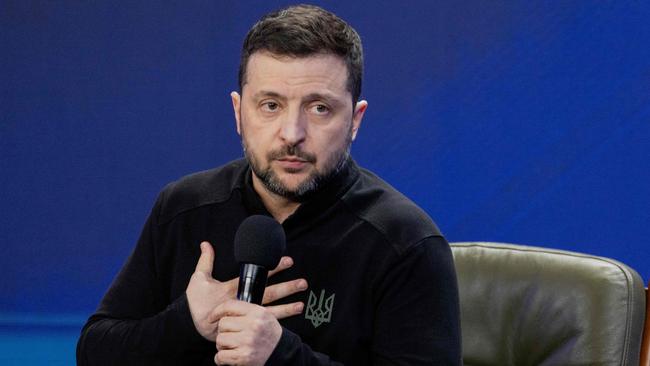
Ukrainian President Volodymyr Zelensky said the Trump administration should offer a better deal on mineral rights, pushing back on a proposal that has provoked a public feud between two allies who both say they want an agreement to preserve relations.
Speaking at a press conference Sunday, Zelensky said the current U.S. offer demanded ruinous financial contributions from Ukraine, which on Monday marks the three-year anniversary of Russia’s full-scale invasion.
He called for security guarantees as part of any deal, as well as better financial terms. “I don’t want something that 10 generations of Ukrainians will have to pay back,” he said.
Amid the high-stakes international diplomacy, Zelensky has frequently found himself the target of Donald Trump’s attacks. The U.S. president criticised him for complaints over not being involved in the talks with Russia and over Ukraine’s postponement of presidential elections, which according to the country’s legislation can’t take place during martial law.
On Sunday, Zelensky responded to some of Trump’s jabs, reiterating that elections weren’t possible during war.
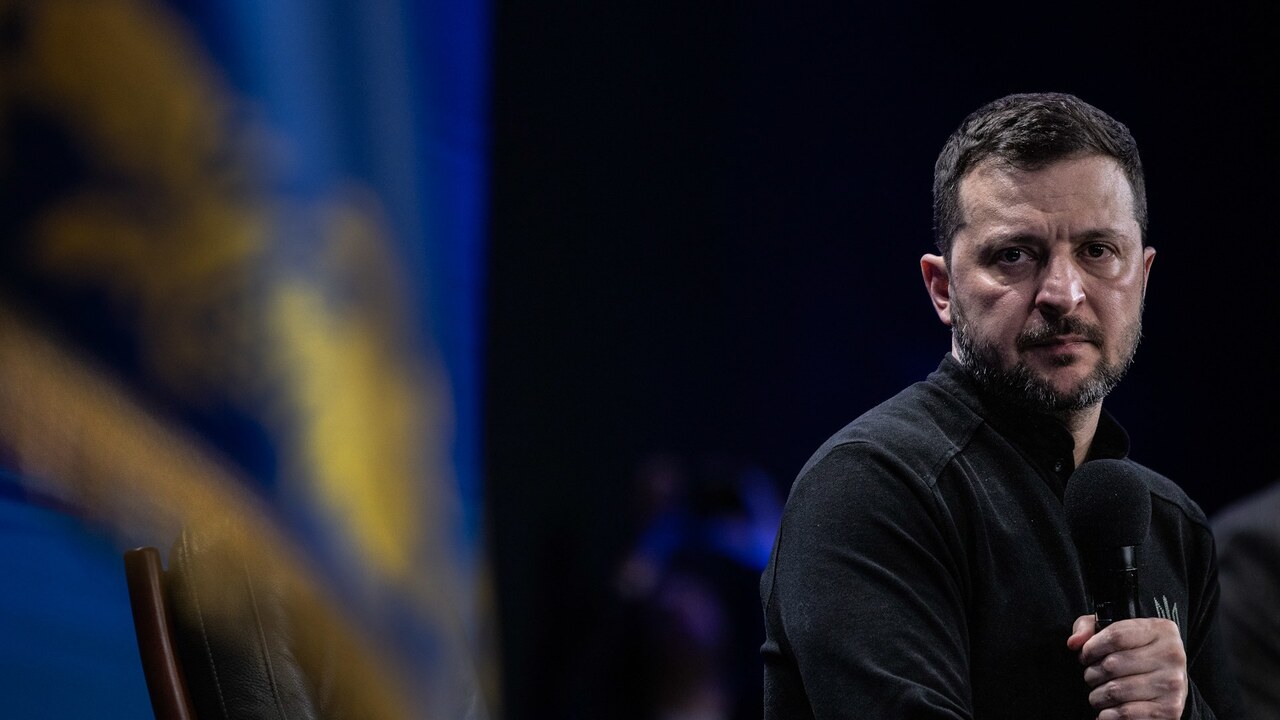
“How are people at the front going to vote if they can’t return home to vote?” Zelensky said. “I don’t understand what that would be like.”
\Asked whether he was ready to step down before an election, if his resignation leads to peace for Ukraine or the country’s membership in the North Atlantic Treaty Organisation, Zelensky said he would.
“If it’s peace for Ukraine, if I really need to leave my post then I’m ready,” he said. “I can exchange it for NATO, if there are such conditions.”
Zelensky has long pressed for quick membership for Ukraine in NATO, but the Trump administration and some European allies are against it.
Zelensky on Sunday laid out his reasoning for rejecting the initial U.S. minerals proposal. He said any offer should include security guarantees and that the demand that Ukraine return $500 billion for military and financial aid provided during the war far outstripped the $100 billion that the U.S. had provided.
He said the money was given in the form of grants that were negotiated with the Biden administration and that it was unfair for Trump to now demand the money back. “A grant is not a debt, therefore we don’t need to return a debt,” he said.
Trump pushes for rare earths deal
The Trump administration has demanded preferential access to Ukrainian mineral reserves, which include sought-after titanium, lithium and rare earths, as payback for U.S. aid to Ukraine during the war.
Acrimony over the U.S. demands sparked a war of words between President Trump and Zelensky last week in which the Ukrainian president said Trump was “living in a disinformation space” and Trump called the Ukrainian president a dictator.
Fearing an outright collapse in relations, aides to both presidents tried to push the two sides together and on Friday were saying that they were close to a deal.
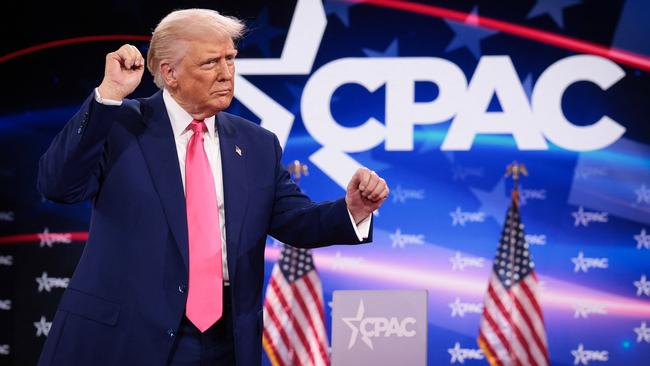
This weekend, the Trump administration went on the offensive in defence of the deal.
Speaking on Fox News Sunday, National Security Adviser Mike Waltz called the deal a “reformulation of how the United States provides aid, a partnership with Ukraine economically in their critical minerals” so that the U.S. gets “a return on this massive investment they have made” in Ukraine’s defence.
Defence Secretary Pete Hegseth told Fox News Sunday that “Zelensky should come to the table, because this economic partnership is an important thing for the future of his country, and we hope that he will very soon.”
The dispute over the minerals proposal is part of mounting disagreements between the U.S. and its allies about how best to end the war in Ukraine.
Trump has courted Russian President Vladimir Putin, speaking with him by phone, dispatching senior officials to meet with Russian counterparts and killing a United Nations resolution that Ukraine had crafted with European support marking the war’s third anniversary.
Europe rallies behind Ukraine
Trump’s positioning has put him at odds with allies in Europe and stretched trans-Atlantic tensions to their greatest in years. The White House has said Europe needs to increase spending and military efforts to provide for its own security and to cement any peace deal in Ukraine, as it could no longer depend on the U.S. to do so.
Polish President Andrzej Duda met with Trump on Saturday and lobbied for the U.S. to boost its military presence in Poland and Central Europe as part of a force to deter Russia.
French President Emmanuel Macron and U.K. Prime Minister Keir Starmer are set to visit Washington on Thursday to speak with Trump about U.S. security guarantees for Ukraine and the question of deploying an international peacekeeping force to monitor the front line after the war ends.
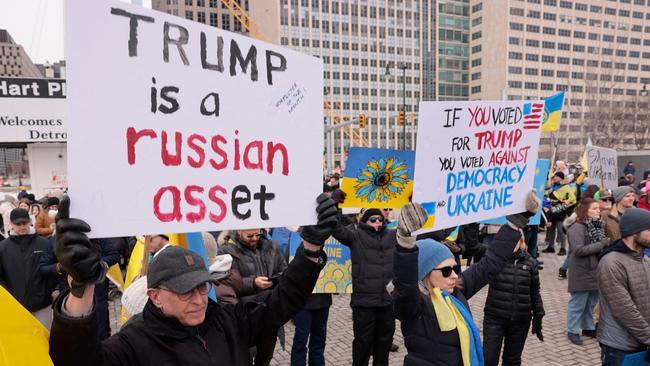
US military backing ‘implicit’
Trump’s Treasury secretary, Scott Bessent, said that there were no military guarantees in the proposed rare earths deal, but called such guarantees implicit because the U.S. would be so heavily invested in the Ukrainian economy.
“We want to intertwine the U.S. and Ukrainian economies for the benefit of both,” he said, adding that “the Russians hate this deal.”
Bessent said events last week, when Trump and Zelensky launched verbal assaults on one another, “seems to have put a bit of daylight between us.”
But he said he is confident that “there is no daylight” and hopeful that a deal will be signed this week.
Zelensky said any deal with the U.S. would have to be a clear benefit to Ukraine’s economy for many years and be accompanied by pledges of future U.S. military aid that would enable the country to maintain its independence.
He said the U.S. side had demanded that Ukraine pay two dollars for every dollar of aid the U.S. provides, a proposal he said was unfair.
The sparring with Trump has helped bolster Zelensky’s popularity at home, according to pollsters, amid widespread public anger over U.S. demands.
The war, meanwhile, continues apace. Overnight into Sunday, Moscow launched almost 270 explosive drones against Ukraine — the largest Russian drone attack of the war.
Russian troops are advancing slowly on the main battlefields in Ukraine’s east, but the pace of their gains has dropped in recent weeks amid heavy losses.
Dow Jones

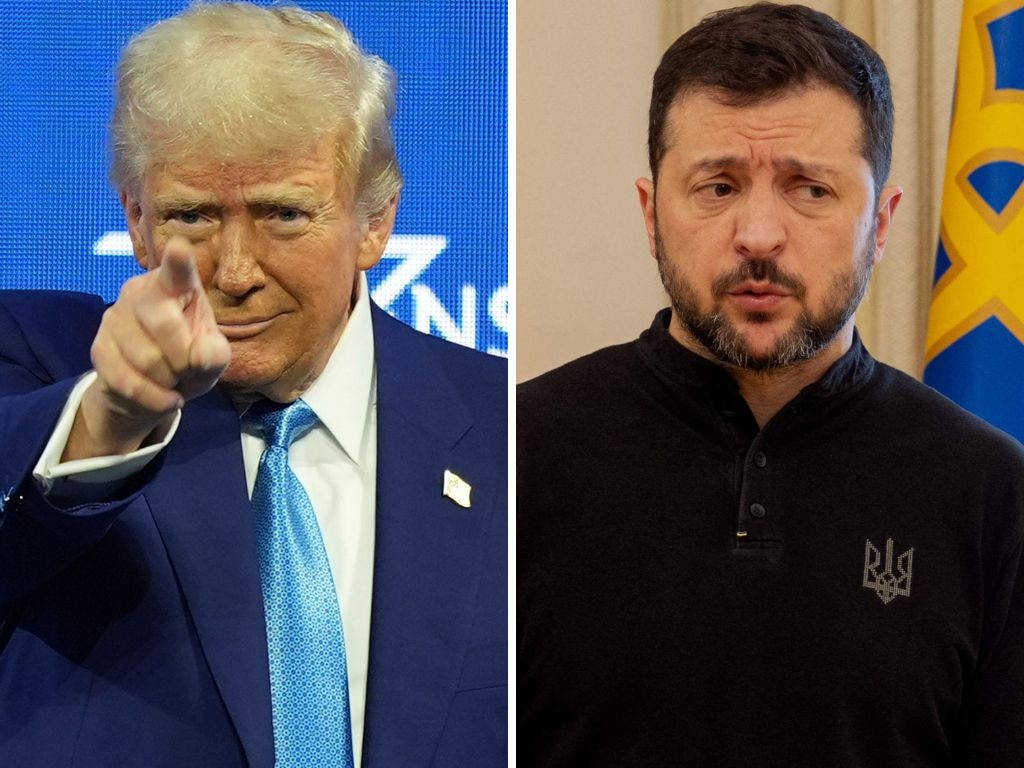




To join the conversation, please log in. Don't have an account? Register
Join the conversation, you are commenting as Logout